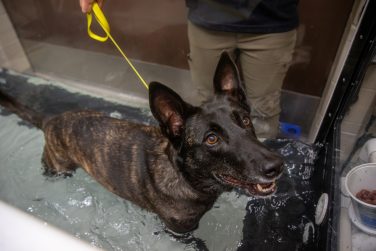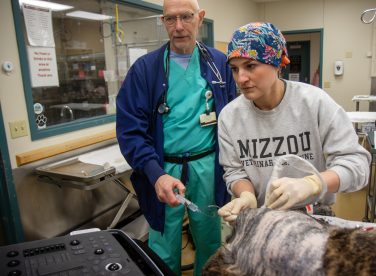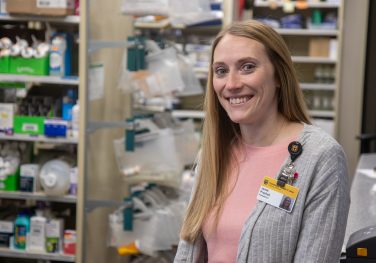The Department of Veterinary Medicine and Surgery is the academic home of the Veterinary Health Center. Our mission is to develop and disseminate knowledge to improve the health and well-being of animals and people through instruction, innovative research, service and leadership.
Faculty from the department provide training in all four years of the professional curriculum from basic science instruction to guiding and supervising DVM candidates in diagnosing, preventing and treating disease in animals. The department also offers advanced specialty training to interns and residents as well as graduate training leading to the master of science degree. Faculty members are involved in providing continuing education opportunities for veterinary professionals and livestock producers.
The department advances scientific knowledge through dynamic and varied research programs that include comparative orthopedics, internal medicine, neurology, nutrition, oncology, physiology, pharmacology, cell and molecular biology, imaging and nuclear medicine, ophthalmology, rehabilitation, tissue engineering, food animal, equine, and small animal medicine and surgery, and others. Research projects are supported by federal grants, foundation awards and grants, corporate grants and contracts, and intramural funds.
The faculty also serve the profession through dynamic leadership in scientific and professional societies.
Mission Statement for the Department of Veterinary Medicine and Surgery
To develop and disseminate knowledge to improve the health and well-being of animals and people through instruction, innovative research, service and leadership.
Statement of Values
Respect
Respect defines every aspect of our approach to departmental missions. Respect not only for ourselves, our co-workers, and the constituents we serve, but also respect for animals. Respect is demonstrated by a commitment to act ethically and to engage in open exchange about ideas and decisions.
Discovery
We value discovery with the realization that knowledge changes constantly. Only through improved understanding and a dedication to dissemination of knowledge can we fulfill our mission to improve the health and well being of people and animals.
Excellence
We must demand excellence of each other collectively, and more importantly of ourselves individually. We must not be content with the status quo, but must constantly strive to achieve our best in pursuit of our mission.
Responsibility
Each department member shares responsibility for creating a working environment which fosters the values of respect, discovery, and excellence in pursuit of our departmental missions. Being responsible requires us to be thoughtful stewards of resources—accountable to ourselves, each other, and the public we serve.


